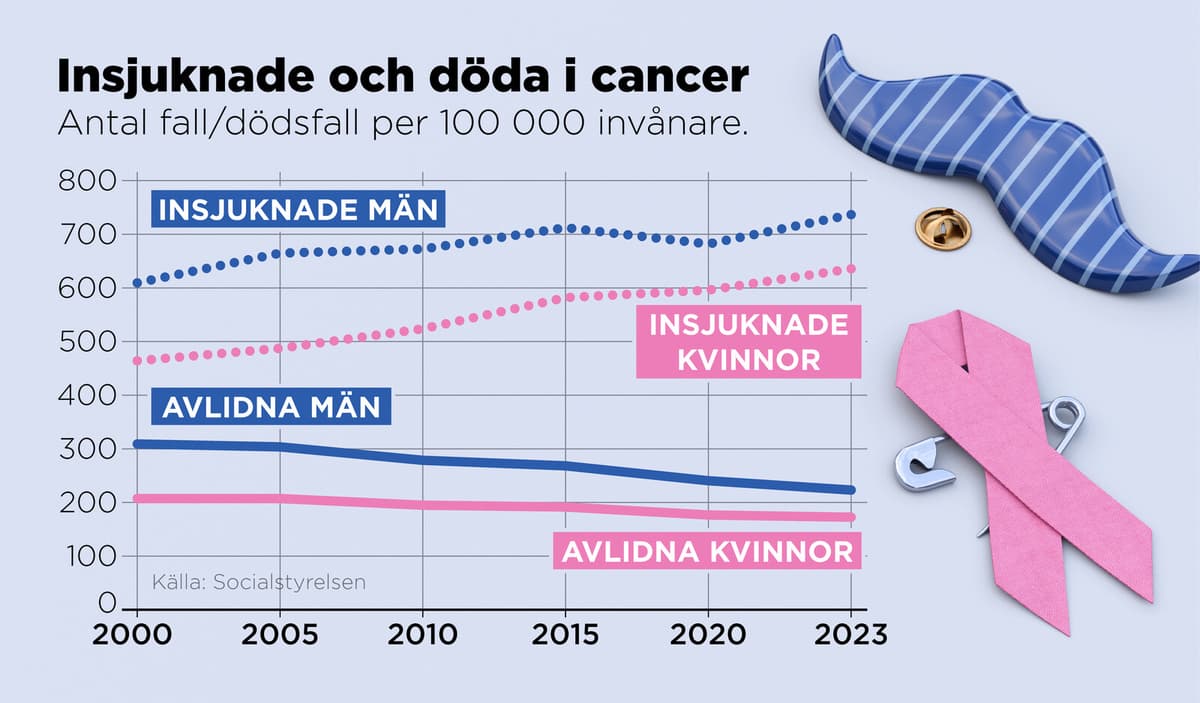A growing proportion of Swedes are affected by cancer. Despite this, mortality from the disease has decreased thanks to research and treatment.
However, treatment, preferably at an early stage, requires each individual to be vigilant about symptoms and participate in screenings. But there are unjustified differences to the disadvantage of men, particularly socio-economically vulnerable individuals, according to a new report from the Cancer Foundation.
A survey conducted by the organization shows that men have poorer knowledge than women about skin changes and other characteristic symptoms of cancer.
The survey also shows that men, despite symptoms, wait longer to visit healthcare services to a greater extent than women. And in the only screening program that covers both sexes, that for colon and rectal cancer, a lower proportion of men than women participate.
Male attitude
The Cancer Foundation describes the differences. But what do they depend on?
We believe that women have more continuous contact with healthcare. They are already called for screening for cervical cancer as young women, they are called for mammography and have contact with maternity care, says Helena Torsler Andersson, nurse and expert in oncology at the Cancer Foundation.
She also points to gender roles.
There is still a male norm that illness is associated with weakness and that one should not show oneself. This is also reflected in reported side effects of chemotherapy, where men tend not to report their complaints.
More control
The purpose of the survey is not to create general health anxiety, but to get men to have a bit more control over their health, according to the Cancer Foundation.
Maybe one needs to use other channels than what one does today to reach men, says Helena Torsler Andersson.
For this reason, nurses will be present at some of the summer's horse racing events, precisely to inform. The Cancer Foundation has also initiated collaborations with sports profiles and hopes for cooperation with vehicle inspection stations.
It is probably largely a male thing to go and have one's car inspected, so the message would be to also inspect oneself, says Helena Torsler Andersson.
Symptoms that can, but do not have to, be signs of cancer:
Lumps on the body
Bleeding without known cause
Moles that change
Sores that have occurred without known reason
Long-term coughing and hoarseness
Constipation, diarrhea, and blood in stool
Difficulty swallowing
Difficulty urinating and frequent urination
Long-term fever
Poor appetite and weight loss
Headaches and unclear symptoms from the nervous system
Back pain
Fatigue
Anemia - blood deficiency
Visual problems
Stomach pain
Source: Cancer Foundation






